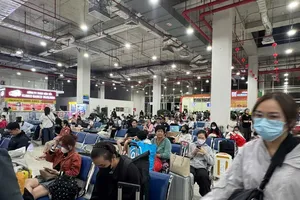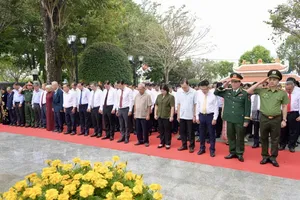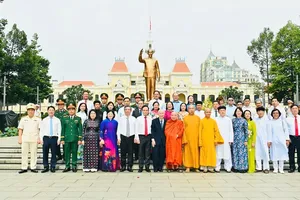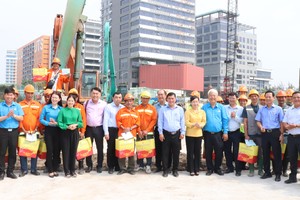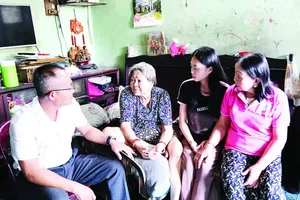
The southern largest city needs to prevent a freefall of fertility rates so this decisive action aims to mitigate the challenges posed by the aging population.
Globally, there are currently about 750 million people over 60 years old, and this number is forecast to increase to 2.1 billion by 2050. Vietnam is among the top 5 countries with the fastest aging population in the world and is forecast to become a country with an aging population by 2036.
Ho Chi Minh City also recorded a rapid aging rate, with the rate of senior citizens reaching 11.33 percent in 2023. It is forecasted that by 2030, the rate of the population aged 60 and over will reach 20 percent (about 1.8 million people) and by 2050, this number could exceed 3 million people (over 30 percent of the total population).
Consequently, it is crucial to acknowledge the significant role of the elderly within Ho Chi Minh City's population structure and the city's rapidly aging demographics. Simultaneously, there is an urgent need to implement comprehensive social security, healthcare, and infrastructural policies that effectively address the challenges presented by this demographic shift.
Many elderly individuals in the country face challenging lives marked by low or unstable incomes and reliance on their family, creating a range of economic, health, and social issues that impact both seniors and society's policies for gray people.
In 2023, the Ho Chi Minh City People's Committee launched a comprehensive plan for 2024-2025 to conduct health check-ups and facilitate early detection of non-communicable diseases among the elderly population. The initiative, which allocates nearly VND150 billion annually, aims to proactively prevent diseases, reduce treatment expenses, and enhance the overall well-being of over 1 million elderly residents through free health check-ups. By 2024, nearly 1 million senior citizens in the city are expected to benefit from this program.
The current approach is deemed appropriate given the city's rapidly aging population, which is accompanied by a relatively low number of healthy years. Nevertheless, the swift increase in the aging demographic, coupled with a declining birth rate and potential imbalances in population structure, poses considerable challenges to the quality and composition of the city's workforce and economy. Therefore, it is essential to implement fundamental and sustainable solutions that align with the impending aging trends.
The pace of development for smart and digital cities is noteworthy; however, it is crucial to focus on the degree of integration with services and digital platforms tailored for the elderly. With Metro Line 1 set to launch soon, it is essential not only to implement fare exemptions and reductions for seniors but also to provide guidance and support to help them adapt to this modern transportation option. This approach will enhance their confidence and overall quality of life.
To maximize the contributions of older workers, should the Law on the Elderly and the Law on Employment be revised to incorporate more diverse and flexible provisions that encourage their appropriate integration into the labor market, capitalizing on their wealth of experience, high skill levels, and strong work ethic.
Drawing inspiration from nations grappling with aging populations, this analysis explores the concept of the "silver economy," examining various methodologies, business models, and entrepreneurial ventures that not only serve the elderly but also empower them to become entrepreneurs themselves.
The city should not only prioritize the development of care and service areas for the elderly, such as medical services, healthcare, living aids, and essential tools, but also leverage the valuable assets of the elderly. This approach would increase social labor, address the needs and psychological well-being of the elderly, and promote active and fulfilling lifestyles.
As the government increasingly emphasizes the care of the elderly, the amended Law on Social Insurance will come into effect on July 1, 2025. This law lowers the age threshold for social assistance from 80 to 75 years for those without a pension.
Additionally, the required duration of social insurance contributions for employees will be reduced from 20 years to 15 years. It is essential for the Government to adequately prepare facilities that enable the elderly to fully benefit from these changes, ensuring comprehensive policies in social protection, healthcare, accessibility to infrastructure, transportation, culture, and tourism for older adults.
